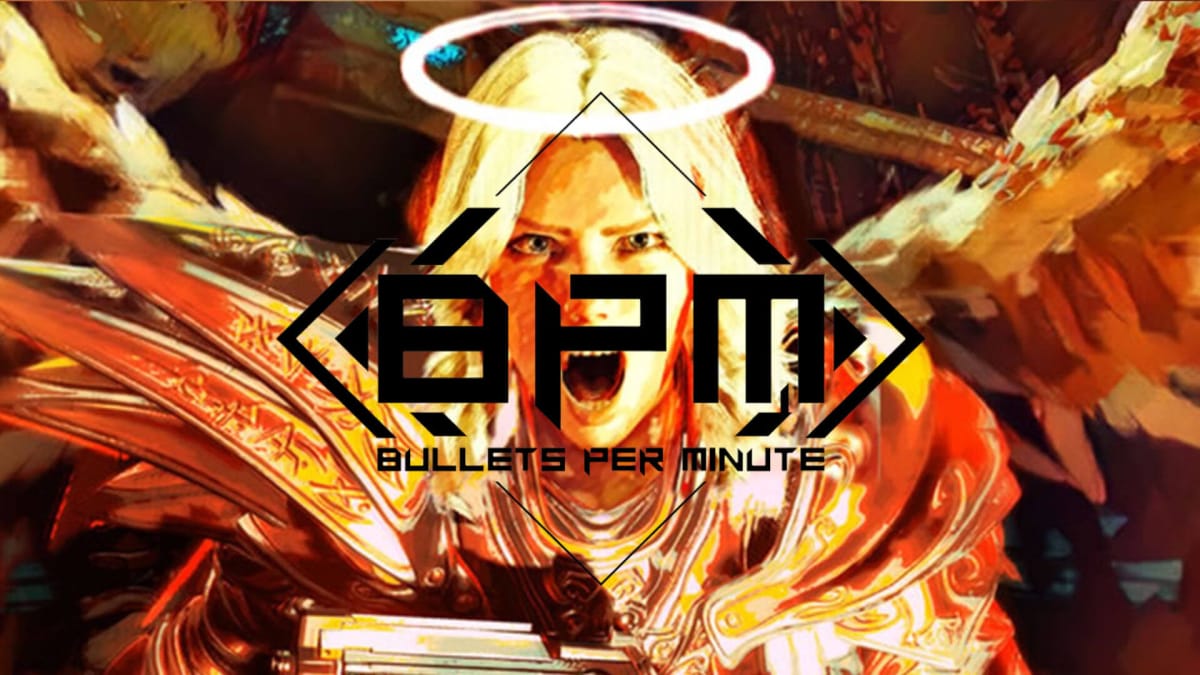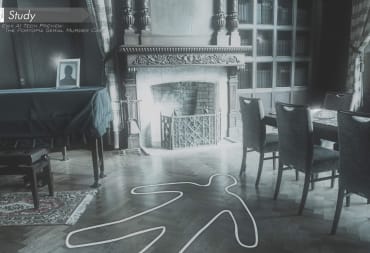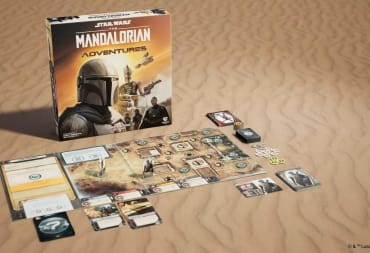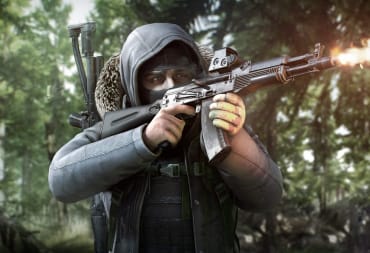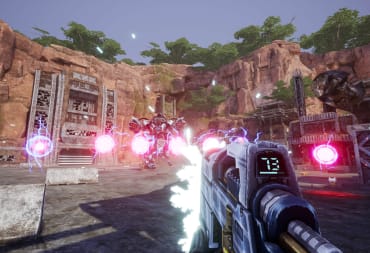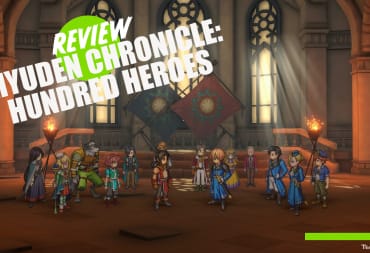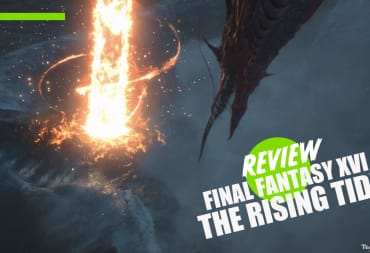Like dangerous chemicals, mixing gaming genres together should be done with delicacy and care. Get it right and you could create something unique and innovative that pushes the medium forward. Mess it up and you've got the worst of both worlds; a game that over eggs the pudding to the point of ruination. It's exactly this potentially suicidal crusade that UK-based developer Awe Interactive is embarking on with BPM: Bullets Per Minute, a rhythm-action roguelite FPS. The aim is simple: navigate Ziggurat-style procedurally-generated dungeons while blasting enemies and dodging hazards in time to the rock-opera soundtrack.
At first glance, these two genres might not seem particularly well-suited to one another, but think again. The best arcade-style first-person shooters - Doom, Dusk, Serious Sam - already feel infused with an almost musical rhythm. Each encounter is like a dance; you balletically weave between enemies, firing shots in time with their attacks and dodging consistent bullet streams gracefully. With that in mind, there's more than enough groundwork in both the FPS and rhythm genres for BPM: Bullets Per Minute to find itself a foothold. All it needs to do now is not mess up the audition.
BPM Shoots To Thrill
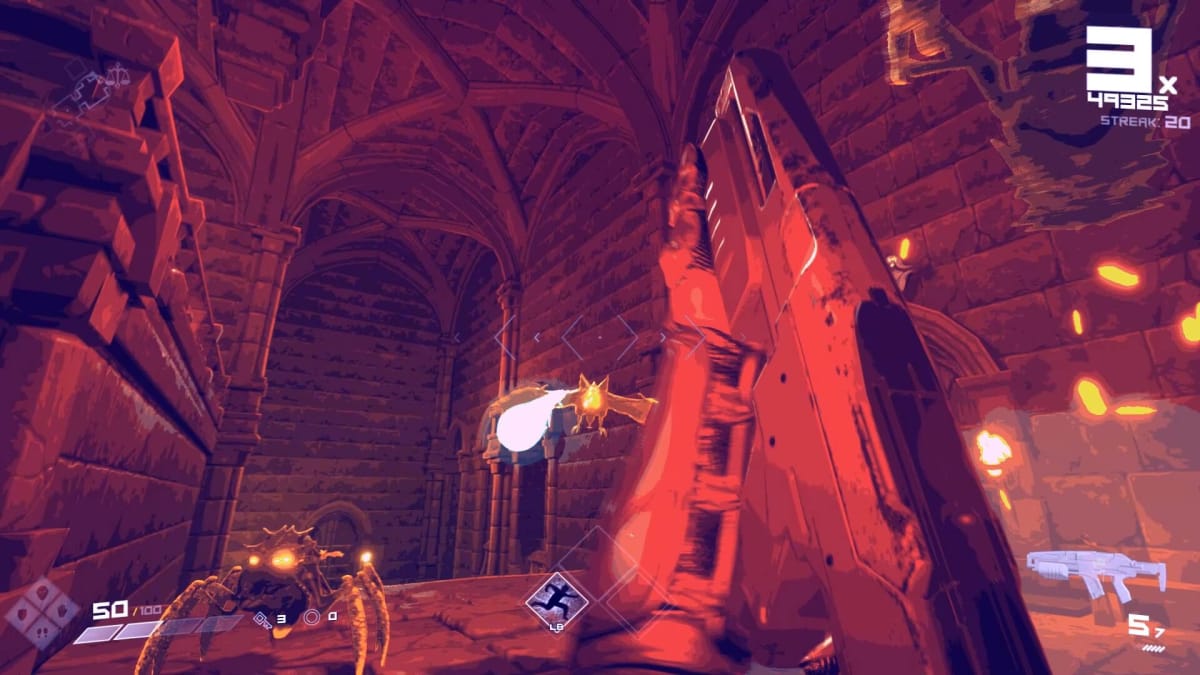
In essence, BPM: Bullets Per Minute is a combination of Crypt of the Necrodancer's rhythm-based movement and combat with Doom 2016-style throwback shooting. Each run sees you sprinting through a series of rooms containing various combinations of enemies. You can only shoot on the beat or on the off-beat of the music that's currently soundtracking the carnage, and all enemies will attack you using the same rhythm. Along the way, you'll also find plenty of extra rooms containing power-ups and new weapons. The framework is fairly standard for a roguelite, so it's all about that innovative core gameplay loop.
Luckily, BPM has been crafted with care and attention. While you may think being chained so tightly to a central rhythm takes some getting used to, the fact is that BPM's core gameplay is remarkably easy to get to grips with. Within the first five minutes, you'll find yourself nodding along to the overblown electro-rock and metal soundtrack, blasting enemies and executing dodges in perfect rhythm. It's astonishing how quickly this loop falls into place, allowing you to observe enemies' attack patterns rather than grappling with the core gameplay.
Guns In BPM Ain't Hard To Handle
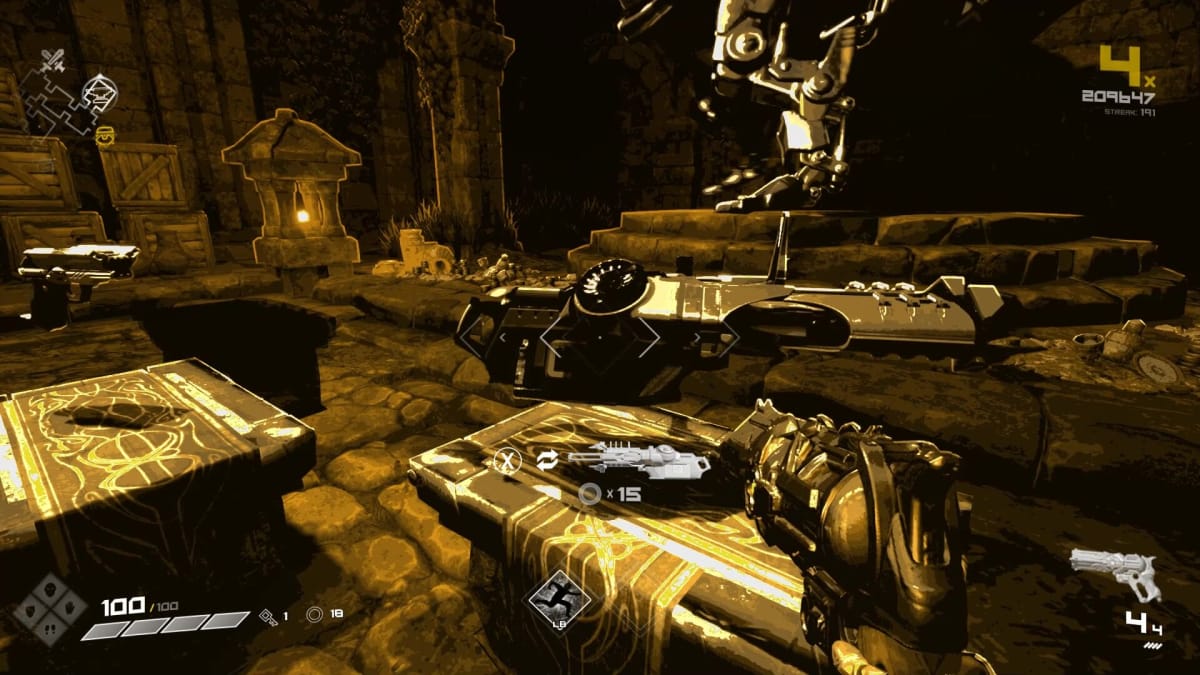
This ease of play is due in part to the weapon system, which works perfectly in tandem with the core gameplay loop. Unlike in other shooters, you'll never have to worry about ammunition, as each gun has infinite bullets. You will still need to reload (and, naturally, this needs to be done on the beat too), but your clip is unlimited, leaving you free to focus on timing. Every new weapon I got my hands on felt visceral and satisfying, especially when combined with the economy of the beat; you can't fire unreservedly, making each shot feel that much more rewarding when you time it correctly.
If you want to get anywhere in BPM, you'll definitely want to exchange your starting pistol for something better. BPM offers a range of weaponry, from shotguns to Gauss-style single-shot guns and miniguns. Some of these weapons are definitely more powerful than others; some weapons won't scratch bosses, while others will obliterate health bars in a way that's so absurdly overpowered as to feel like an exploit. In the end, though, that contributes to BPM's vision of a power fantasy; this is very much the game power metal bands like Blind Guardian or Sabaton would make if they were developers.
In BPM, The Song Remains The Same
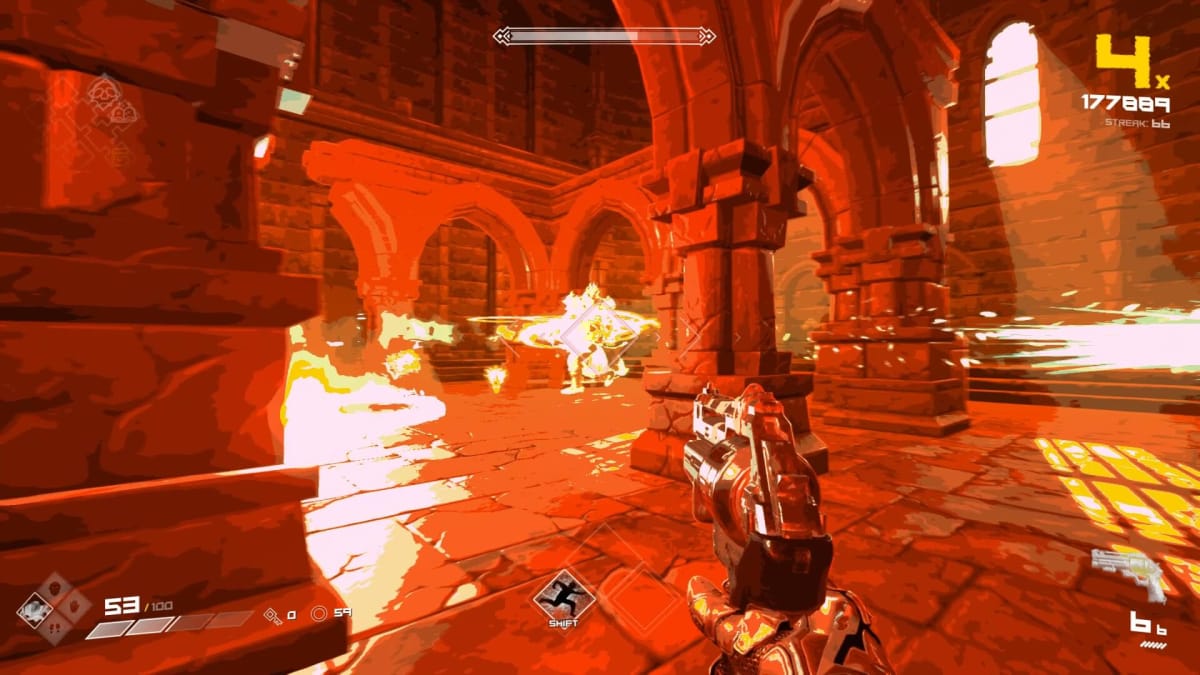
Since it's a roguelite and it doesn't innovate on its core structure, BPM: Bullets Per Minute can feel repetitive. The rhythm shooting action is great fun, but there's not much to do outside of it; the Ziggurat-esque room-by-room layout means there's very little to explore outside of what's clearly indicated by minimap icons. Repetition very quickly sets in during combat encounters, too; the enemy pool is quite limited in the first areas, and you'll be seeing an awful lot of the same critters before you reach the level of mastery BPM requires to show you its later levels.
As BPM opens up, it does become more interesting. Each interpretation of one of the nine Norse realms has new enemies to master, and many of them require interesting tactics beyond simply matching the rhythm of the music. You can also unlock more permanent upgrades thanks to blacksmith Muninn and item merchant Huginn, each of whom opens up more items for sale the more you spend with them. These weapons alleviate the repetition somewhat, as does the increasingly hellish geography as you move further through BPM's versions of the Nine Realms.
Nothing Else Matters But BPM's Combat
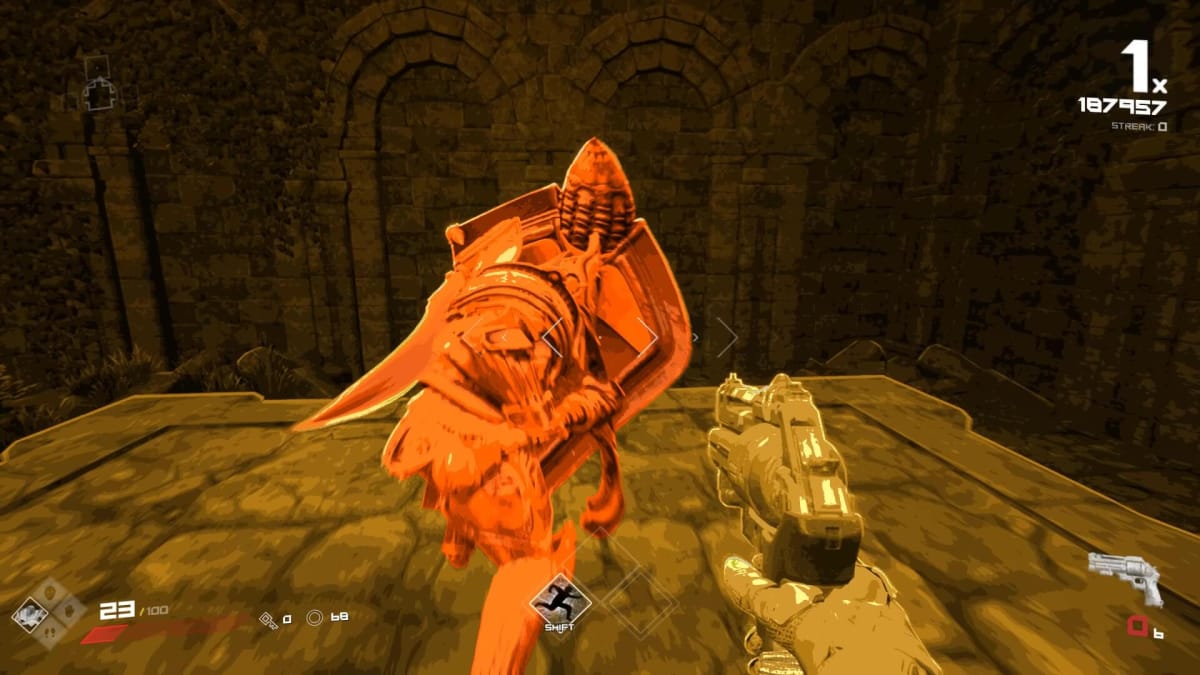
In general, though, there's very little to do in BPM outside of its core combat loop. There's no real narrative to speak of; the Norse mythology stuff is a framework, but it's never center stage and you can completely ignore it if you want to. Levels are bare-bones and somewhat anemic, so the satisfaction through exploration you'd find in Doom or even other roguelites like Children of Morta is nowhere to be found here. The emphasis is squarely on the shooting. Although you can unlock new guns and items which will subsequently be on permanent sale in the ravens' shops, you'll still need to gather the coin to do so, meaning each run is a complete hard reset.
There are challenge modes to test your mettle in BPM, but they're fairly uninspired variations on the core run. Make no mistake: BPM is very much a one-hit-wonder. If you try the rhythm-based shooting and don't enjoy it, there's absolutely nothing to keep you here. Despite this relative lack of content, BPM's focus on simple, straightforward songs with ordinary time signatures means it won't leave you in the cold unless you completely lack even a rudimentary sense of rhythm. There was scope here to include trickier excursions into compound time or syncopation but to demand complexity like that may be churlish. In the end, BPM accomplishes what it sets out to do: it's a satisfying yet simplistic rhythm-shooter. Nothing more, nothing less.
Devs Gave Rock And Roll To BPM
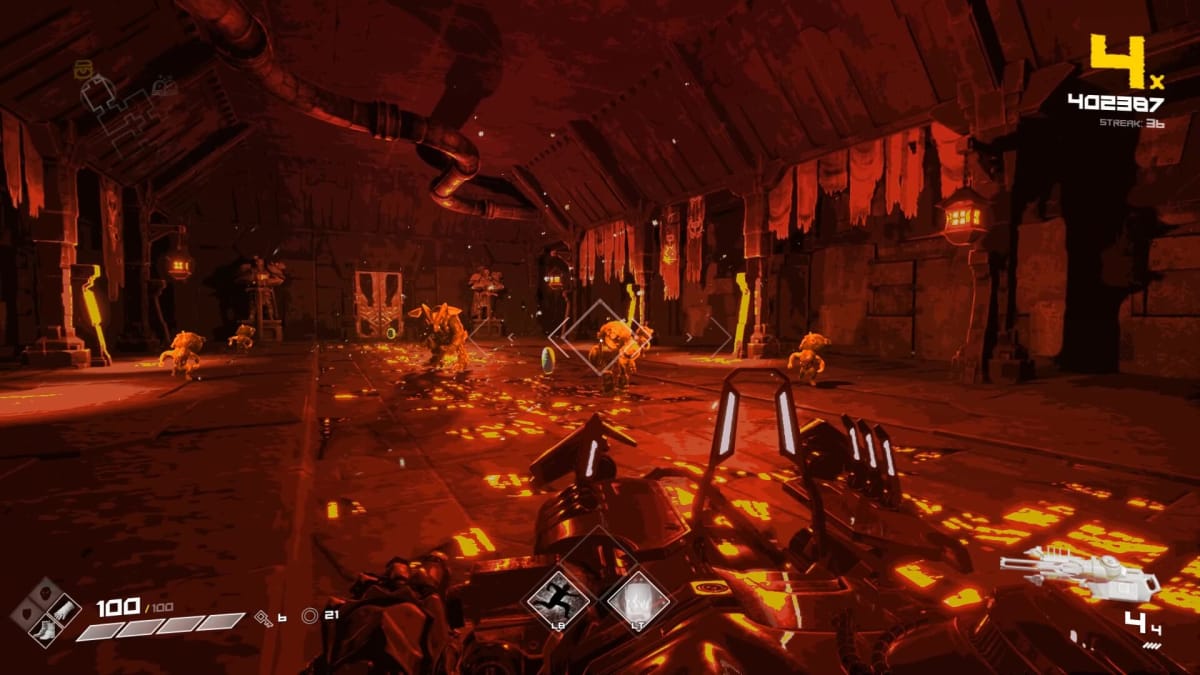
Of course, any rhythm game lives or dies by its soundtrack. That's what makes Crypt of the Necrodancer, Guitar Hero, and even curios like Gitaroo Man work. You want to achieve mastery in those games just to hear more of their sublime music. In this area, BPM absolutely dominates. The soundtrack is excellent and feels exactly as high-camp metal as it should. Killing bosses even evokes a Queen-style fanfare of harmonized electric guitars, which never stops kicking ass. If the music had fallen flat here, the whole premise would have fallen apart, but thankfully that's not the case.
In this light, playing BPM almost feels like listening to an eclectic rock and metal greatest hits album by a band that doesn't exist. Getting sent back to Asgard might feel galling - those damned bats again - but it's worth it to hear that earth-shaking electronic pulsing bass. Make sure you play BPM with a superlative sound system; surround-sound speakers or headphones are strongly recommended. If you're someone who likes to play roguelites to pass the time with a favorite podcast, you can put that thought out of your mind, too. BPM requires absolute focus from you in order to hear each beat of the music.
BPM: Bullets Per Minute | Final Thoughts
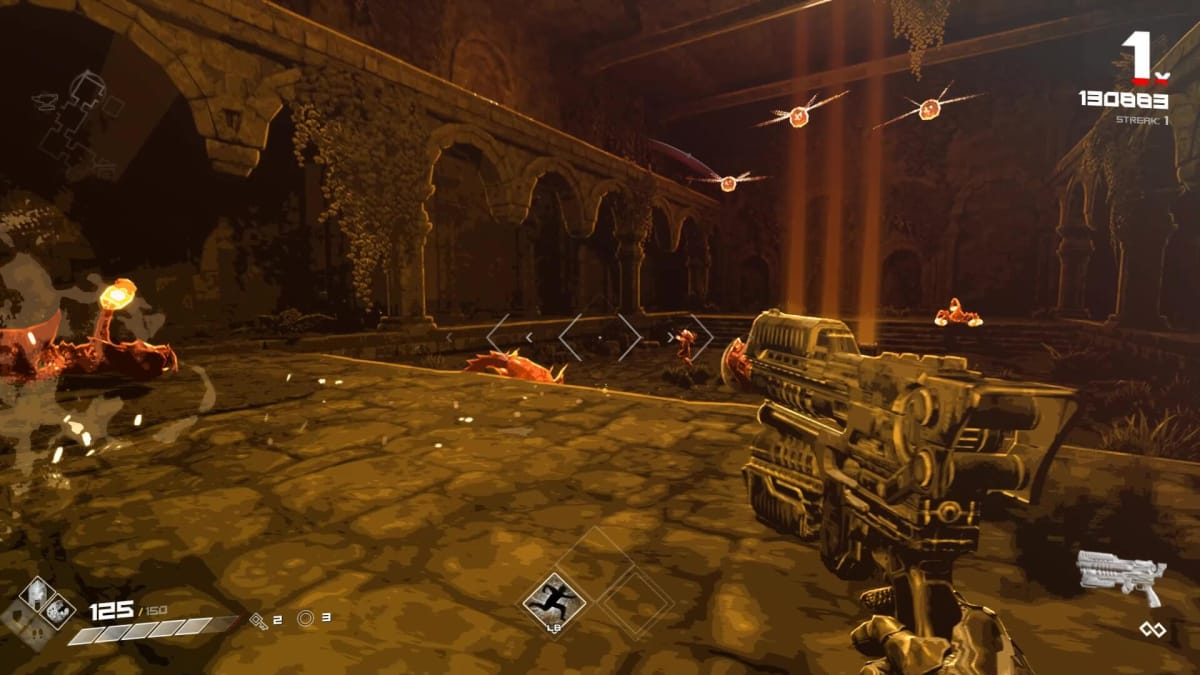
BPM: Bullets Per Minute is chock-full of potential. The innate complexity of hard rock and metal music is totally absent here; if you're a fan of bands like SikTh or Opeth, you might find BPM's nonetheless excellent soundtrack a little simplistic. Despite this - and a lack of meaty content - BPM is viscerally satisfying. It's the perfect "drop in for ten minutes" game; runs seem designed to be brief and hectic rather than protracted and absorbing. There's nothing here to keep you playing for long periods of time, but as a quick way to blow off some steam whilst "rocking out", as the kids say, it'll more than suffice.
TechRaptor reviewed BPM: Bullets Per Minute on PC via Steam using a code provided by the publisher.
Review Summary
Pros
- Excellent Rhythm-Based Combat
- Strong Enemy Design
- Great Rock Soundtrack
Cons
- Overly Repetitive
- Not Much Content
- Feels Bare-Bones
Have a tip, or want to point out something we missed? Leave a Comment or e-mail us at tips@techraptor.net
